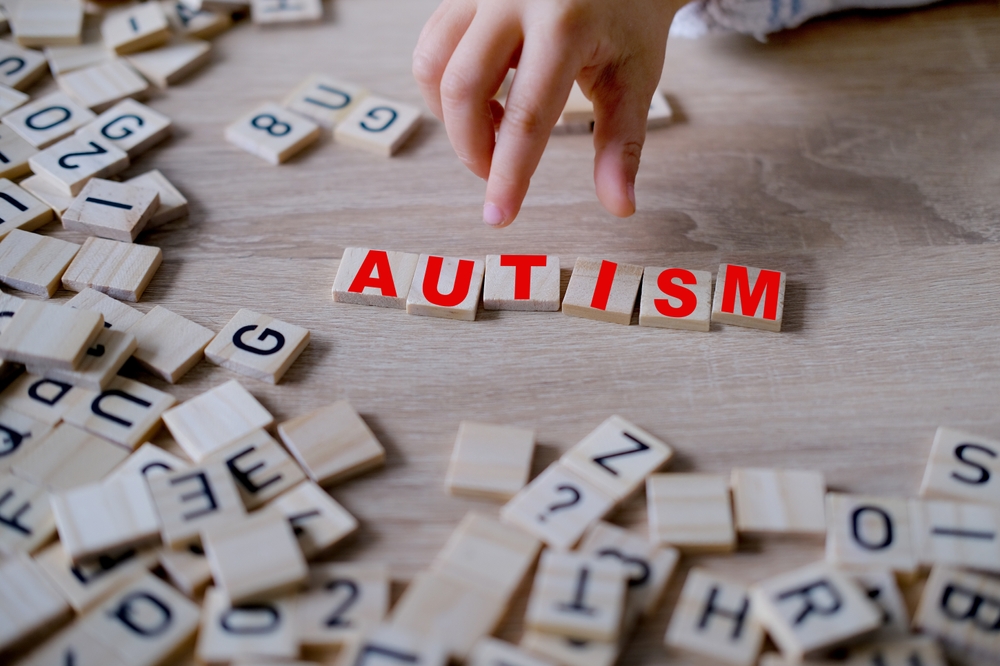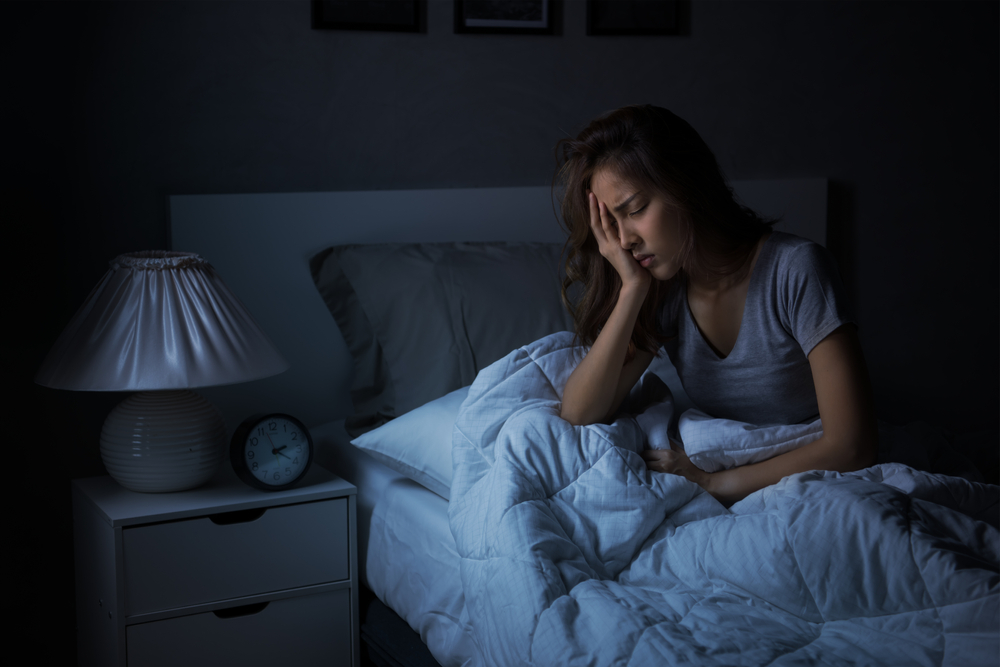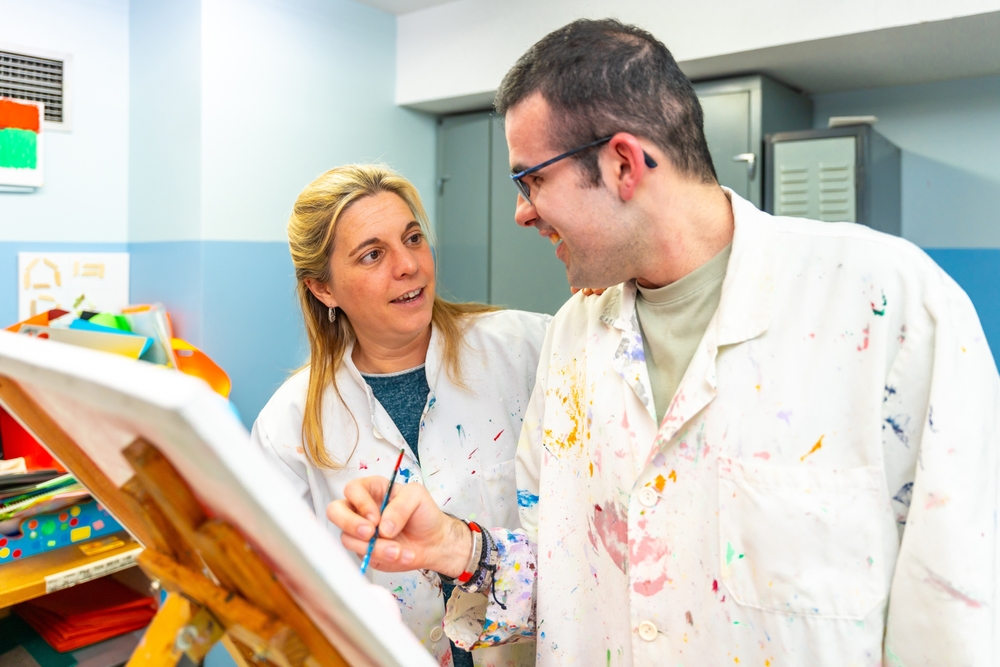Read this to find out the link between autism and sleep issues: what you need to know to understand the connection, and how to improve sleep.
Autism can result in a number of complications to a person’s life, with a strong impact on sleep. Today, our article on the link between autism and sleep issues: what you need to know will cover the link and what you can do to improve sleep quality at home.
Here at the Brain Workshop, we are dedicated to helping you live your best life. If you want to learn more about autism, ADHD, and mental health, have a look at our latest articles on if ASD is a learning disability, the importance of nutrition and brain development, the causes of a short attention span, and how to improve your concentration.
A Quick Overview of Autism

Autism is a disorder that can impact different people in different ways, and it will often look different in boys vs girls. Common challenges that autistic people face revolve around social skills, repetitive speech and behaviours, non-verbal communication and more.
It is important to know that while autism can be incredibly varied, there are a number of common comorbidities to consider. Things like sleep disorders, gastrointestinal disorders, anxiety, and depression are all common in autistic populations, and can add additional challenges to their lives.
Signs of Autism
There are many different signs of autism to look out for, with many being more subtle than others. However, it’s important to remember the distinction between autistic individuals in real live vs fictional characters. While some of them can be a good starting base to understand ASD, these depictions are not all realistic, and may be damaging to the community.
Primary signs of autism in adults:
- Enjoying having a routine and becoming anxious when that routine changes
- Taking things literally (this is especially common with phrases and sarcasm)
- Difficulty stating how you feel
- Coming off as uninterested, rude, or blunt regarding what others are saying
- Anxiety due to social situations
- Difficulty understanding what other people might be feeling or thinking
- Preferring to be on your own or finding it challenging to make friends
Additional signs of autism might include things like echolalia (repeating words or phrases), trouble holding eye contact, having very keen, select interests, and frequently noticing details that others do not.
The Link Between Autism and Sleep Issues: What You Need to Know

The link between autism and sleep issues: what you need to know. Here, we will dive into the details of the topic and explore ways to improve sleep for people with autism. Because this is such a notable issue, there have been many studies over the last several years that have explored the connection between individuals with ASD and all kinds of sleep issues, as well as the way these sleep issues can impact them.
According to studies, almost 80% of adults with ASD experience sleep disturbances, and around 50% of autistic adolescents have sleep problems. These sleep issues can vary greatly, from disturbances and restless sleep to parasomnias and more significant sleep disorders.
Common sleep problems in autistic individuals include:
- Trouble falling asleep – many people with ASD may find that it takes longer than 20 or even 30 minutes to fall asleep when they initially go to bed
- Resisting going to bed – many people with ASD, especially children, may resist bedtime and refuse staying in bed or even getting ready for bed
- Trouble staying asleep – frequently waking up, or waking up and staying up for hours, all compromise a person’s sleep and can lead to tiredness in the morning
- Restless sleep – individuals with ASD might move more than usual in their sleep, which can be disruptive to their sleep
- Waking up too early – many people with ASD might take up very early, then not be able to get back to sleep
- Sleep disorders – examples include periodic limb movement disorder, restless leg syndrome, insomnia, obstructive sleep apnoea, and more
- Parasomnias – this covers unpleasant and unusual nighttime experiences, including nightmares, bed-wetting, sleepwalking, night terrors
Behavioural Issues Are More Common When Sleep Disorders Are Involved
Many studies have looked at the connection between autism and sleep disorders. Overall, it has been found that more significant behavioural issues are more common in autistic individuals with sleep disorders, or those who have a poor night of sleep.
Sleep disturbance and behavioural dysregulation are closely linked in autistic children, with night awakenings having the most consistent, strong association. Unfortunately, this is not an issue that goes away with age, but these issues may improve.
Autistic adults are more likely to encounter issues like sleepwalking and insomnia compared to neurotypical people. However, studies have suggested that even when a person with ASD does sleep through the night, their sleep is less refreshing compared to neurotypical counterparts.
Melatonin Plays a Key Part, According to Studies
Studies looking at melatonin levels in autistic children vs non-autistic children found that the nighttime levels of 63% of children with ASD were less than half of the average of non-ASD children. This has also been linked to the severity of autistic symptoms, where children with low melatonin experience more serious symptoms.
Additional studies have also found that melatonin levels in a 24-hour cycle in young adults and teenagers are generally lower in those with ASD compared to neurotypicals. This covers both daytime and nighttime levels.
Causes of Sleep Issues in Autistic People

As with many things, there are a number of causes of sleep issues in autistic people, and more than one will likely apply. Due to the complexity of this topic, researchers believe that psychological, environmental, health, social, and biological factors can all impact and contribute to sleep issues in autistic people.
Below are some attributed reasons for sleep issues in autistic populations:
- Disruptions to the circadian rhythm – genetic abnormalities that control the biological clock by producing melanin can result in disruption to the circadian rhythm, which means that individuals with ASD might not react to darkness and ‘sleeping signals’ the same way as other people do
- Behavioural and social features – disruptive behaviours, difficulty with social cues, and limited communication skills can all contribute to getting in the way of sleep-facilitating behaviours
- Mental health conditions – ADHD, anxiety, and depression can all contribute to sleep issues, and individuals with ASD are more likely to experience one or more of these (four times more likely to have depression, and over ¼ of those with ASD also have ADHD)
- Environmental factors – sensitivities can heavily impact sleep quality, as sounds, sensations, and light sensitivity can all make it more difficult to go to sleep and stay asleep
- Impact of health – issues such as gastro-oesophageal reflux disease (GERD), epilepsy, and iron deficiency can all impact sleep quality
Ways to Improve Sleep for Autistic People
There are steps you can take to improve sleep quality if you struggle with it. Many of these are easy to implement, but you should expect to make some lifestyle changes if you want to improve your sleep.
Below are some things that you can do to help improve sleep at home:
- Keep bedrooms quiet
- Avoid the use of electronics at least one hour before bedtime
- Keep your sleeping area dark (unless a night light is required)
- Set up a routine for sleeping so that you know when to go to sleep and when to wake up (visual schedules can be useful for some individuals)
- Avoid heavy meals at least two hours before going to bed; light snacks are okay if necessary
- Avoid foods with caffeine in the hours before you go to sleep (this includes coffee, chocolate, cola, energy drinks, and most teas)
- Avoid drinking alcohol or smoking in the hours before you get ready to go to bed
- Exercise every day and try to get out in the sun
- Ensure all bedding and pyjamas are comfortable to avoid any irritation
- Avoid taking long taps, particularly in the later afternoon
Contact the Brain Workshop Today

Please remember that these are common issues in those with ASD, and while there is no ‘cure’, there are things that you can do to help. Hopefully this article on the link between autism and sleep issues: what you need to know has been useful, and you now understand the topic better, and what you can do to try and improve your sleep.
If you would like to learn more, please don’t hesitate to contact us and find out more about our programs, assessments, results, and success stories. If you want to find out more about ASD, why not have a look at our blogs on how to parent a child with ADHD and autism, or the difference between Asperger and autism?






